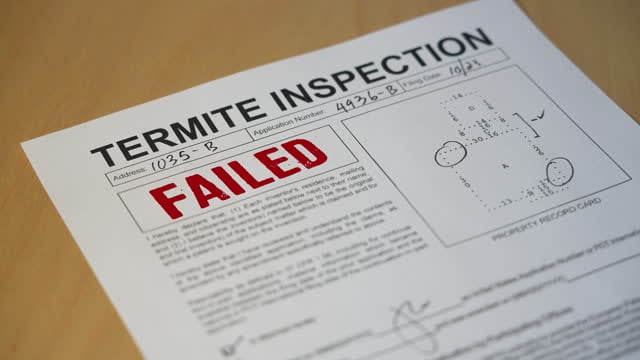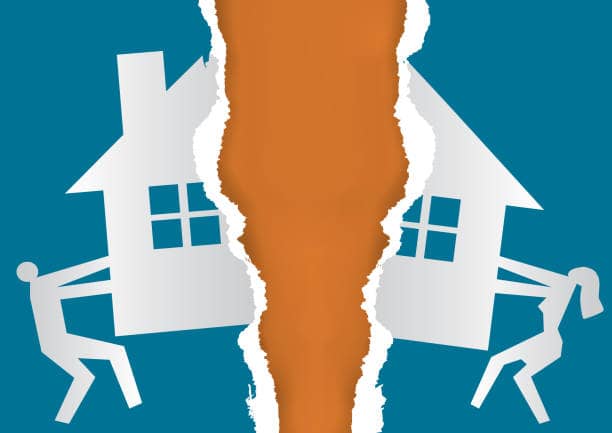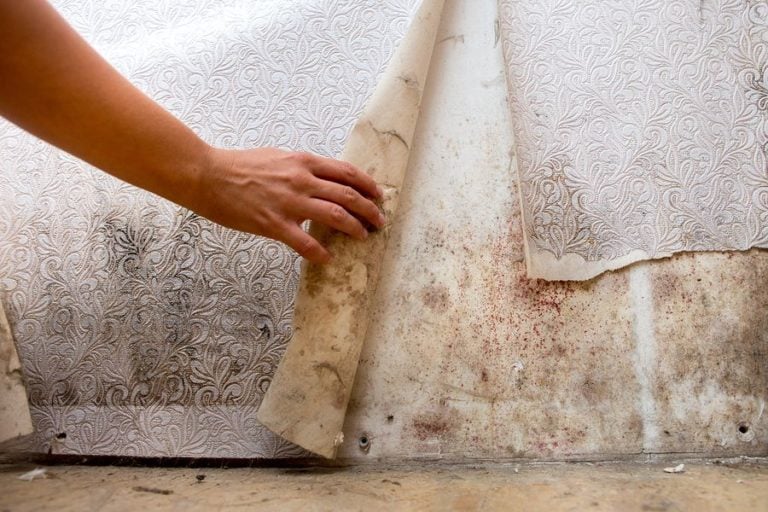How Much are Closing Costs in California? Buyer & Seller Average
Whether you are buying or selling a home you should know that closing costs are going to be high. The bulk of the expense, however, falls to the seller. If you’re selling in Southern California, a real estate investor who pays cash for homes may be the right choice.
Table of Contents
What are closing costs in California?
There are many closing costs in California that affect both buyer and seller, and the larger and more costly the home, the more these costs tend to be. When you buy a home in California, you should expect bank-related fees, but the seller handles the lion’s share of closing costs.
Typical closing costs include:
- Title insurance
- State transfer taxes
- Recording fees
- Home inspection costs
- Prorated property taxes
- Attorney fees
These expenses can add up to a considerable amount that can decrease the buyer’s profits significantly.
Who pays closing costs in California?
Both buyers and sellers pay closing costs in California, and the amounts owed are based on a range of factors. As the seller, you can ultimately expect to pay more of the closing costs. Matters like the property’s value and whether legal guidance is needed will dictate the amount owed.
What are typical closing costs in California? Consider the details outlined in the form below regarding who pays closing costs in CA, including average fee percentages:
| Closing cost | Average fee | Who pays? |
| Title Insurance | .75 percent of the selling price | In Southern CA, the seller pays |
| Title service and settlement fees | .32 percent of the selling price | The seller generally pays |
| Transfer tax | .11 percent of the selling price | The seller generally pays |
| Recording fees | .03 precent of the selling price | The seller generally pays |
| Home inspection costs | Approximately $300 | The buyer generally pays |
| Prorated property tax | About 1.5 percent | The buyer and seller split this in relation to the closing date |
These customary closing costs in California can add up quickly, and because you, as the homeowner, will be responsible for most, it’s important to keep these upfront costs, which will come right off the top of your profits, in mind.
The above expenses don’t even take the real estate agent’s commission into account. This expense tends to add an additional 5 percent or more to the real estate transaction and can take a considerable chunk out of your final sale price. This commission is the only fee the real estate agent is paid, and it is not only the biggest closing cost but is also paid entirely by the seller.
How much are closing costs in California?
The cost of selling a house in California is considerable, and the closing costs you’ll be required to pay play a significant role. You can expect your closing costs to be about 2.71 percent. Once realtor fees are added, however, this cost jumps to about 7.71 percent.
It’s also important to take average escrow fees and the cost of a real estate attorney into consideration. While real estate laws in California don’t require that you use a real estate attorney to handle the closing, it’s often advisable.
Additionally, escrow fees apply to the escrow holder collecting the buyer’s down-payment along with the loan amount to facilitate the transaction. Only after this is accomplished will any profit be released to you.
How much are closing costs in California for buyer?
The total closing cost for buyer in California is typically considerably less than it is for the seller, which makes it a good idea to have a solid understanding of these expenses.
1. Home inspection and appraisal costs
Home inspection costs average about $300, and they are usually the responsibility of the homebuyer. Once a buyer makes an offer on a home, an inspection and appraisal generally follow. While a home inspection isn’t required by law, it’s a wise move in relation to an investment of this size.
Most lenders require home appraisals to ensure that the mortgage aligns with the home’s value. The average appraisal fee is $350,
2. Property taxes for the year of sale
Property taxes in California continue to accrue while houses are being sold. The seller is generally responsible for the property tax bill, which amounts to about 1.5 percent, until escrow is finalized. At this point, the buyer assumes the expense.
3. Mortgage-related fees
Buyers can expect to pay mortgage-related closing costs that include all the following:
- The loan origination fee, which is the cost of establishing the loan and can vary considerably from lender to lender
- The loan application fee, which some lenders charge simply for applying and can cost several hundred dollars
- The credit fee, which establishes the borrower’s credit rating and helps to ensure they have the funds to cover the house purchase
Total average closing costs in California for buyer
The total average closing costs for the home buyer in California generally include the cost of the home inspection and appraisal as well as their share of the property taxes for the year – both of which are based on home’s price Additional expenses focus mostly on mortgage-related fees.
How much are closing costs for seller in California?
Whether you are buying or selling a home in California, there are closing costs attached. The seller’s closing costs, however, tend to be far costlier and more extensive than those the buyer is expected to cover. Consider all the following.
1. Title insurance
Title insurance runs about .75 percent of the purchase price, and it protects you in the event that any legal claims are made against the home you’re selling, including any claims based on errors on your deed. The transfer of a property deed without title insurance can put you in a difficult financial situation.
2. Title service and settlement fees
Title service and settlement fees tack on an additional .32 percent of the home’s price in California. This closing cost can address the title search fee and any fees related to the issuance of title insurance. Generally, this expense covers the administrative cost of closing on your home.
3. Transfer tax
Transfer tax costs typically run about .11 percent in California, and they cover the taxes that apply when home buyers and sellers transfer their names on the home’s title at closing.
4. Recording fees
Recording fees vary considerably according to the California county in which the home is sold . These fees relate to county charges for registering the transfer of ownership on a property. The average recording fee in California in about .03 percent.
5. Home inspection costs
The expense associated with the home inspection is generally a buyer closing cost that averages about $300. While this is technically a closing cost, the buyer is generally required to pay for the inspection at the time it’s performed. Sellers are responsible for these costs only when they choose to have an inspection prior to putting the house on the market or prior to a sale closing.
6. Prorated property tax
Closing costs for California homes typically include the seller paying property tax for the number of days they owned the house during the year of sale. This expense is based on the fair market value of home and the county’s tax rate.
Total estimated closing costs for seller in California
The total estimated closing costs for sellers in California come in at about 7.71 percent. For a home that sells for $500,000, that’s about $34,800 – if you pay for half the property taxes that year – and the costs rise from there.
Examples of how to calculate closing costs in California
Knowing the percentages associated with closing costs and how they apply to a home of a specific value are two very different things. The following examples can provide you with a better understanding of what you’re likely to owe in terms of closing costs on a home value of $500,000.
Example 1: How much are closing costs on a 500k house in California
Knowing the closing costs associated with buying a house for $500,000 will give you a much better idea about how much you will likely end up paying.
| Closing costs for buyers in California | Closing cost percentage in California | Cost for a 500k house |
| Home inspection | Set amount of about $300 | $300 |
| Home appraisal | .07 percent | $350 |
| Property tax | 1.5 percent | $3,750 for 6 months |
| Loan origination fee | .75 percent | $3,750 |
| Loan application fee | Set amount that varies among lenders | $350 |
| Credit fee | set amount of about $25 | $25 |
| Anticipated total | 2.32 percent plus $325 | $8,525 |
If you’re selling your home, you should expect a much higher price in closing costs, and the chart below can provide you with a good idea of what they’re likely to be for a $500,000 home.
| California closing costs for seller | Closing cost percentage in California | Cost for a 500k house |
| Title insurance | .75 percent | $3,750 |
| Title service and settlement fees | .32 percent | $1,600 |
| Transfer tax | .11 percent | $550 |
| Recording fees | .03 percent | $150 |
| Prorated property tax | 1.5 percent | $3,750 for 6 months |
| Real estate agent’s commission | 5 percent | $25,000 |
| Anticipated total | 7.71 percent | $34,800 |
Example 2: Average closing costs in CA on 1 million dollar home
As the price of the home you’re purchasing rises, so too do the closing costs. Consider the closing costs associated with a million dollar home.
| Closing costs for buyers in California | Closing cost percentage in California | Cost for a 1 million Dollar home |
| Home inspection | Set amount of about $500 | $500 |
| Home appraisal | .07 percent | $700 |
| Property tax | 1.5 percent | $7,500 for 6 months |
| Loan origination fee | .75 percent | $7,500 |
| Loan application fee | Set amount that varies among lenders | $350 |
| Credit fee | Set amount of about $25 | $25 |
| Anticipated total | 2.32 percent plus $525 | $16,575 |
If you’re preparing to sell your million dollar home, the many closing costs you’ll face include the following.
| California closing costs for seller | Closing cost percentage in California | Cost for a 1 million Dollar home |
| Title insurance | .75 percent | $7,500 |
| Title service and settlement fees | .32 percent | $3,200 |
| Transfer tax | .11 percent | $1,100 |
| Recording fees | .03 percent | $300 |
| Probate property tax | 1.5 percent | $7,500 for 6 months |
| Real estate agent’s commission | 5 percent | $50,000 |
| Anticipated total | 7.71 percent | $69,600 |
Reducing California closing costs
if you’re preparing to sell your home and you’re concerned about the costs paid at closing – among the other related expenses – you should know that you have options. Real estate investors are cash buyers, and they can help you bypass many of the high closing costs associated with selling through an agent.
Fortunately, there are a variety of tips that can help you maximize your profits when selling your home in California.
1. How we drive down sellers closing costs in California
At SoCal home buyers, we are cash buyers in California, and we eliminate many of the closing costs associates with selling a home, and a prime example is the agent’s commission, which is the highest fee of all and can easily exceed $40,000 – for the 2023 California median home value of just over $800,000. Additional advantages that can make a cash sale difficult to pass up include all the following:
- There’s no reason to make repairs or upgrades on your home or to stage it for viewings and open houses – we’ll buy your house as is.
- You won’t need to obtain a home inspection or, as a result, to pay an inspection fee – we’ll take care of all that.
- We don’t require financing, which speeds up the sale process considerably. In the meantime, you won’t face any of the costs that come with holding periods, such as your mortgage payment as well as utility, insurance, and property tax payments.
- We’ve streamlined the selling process to include just a few simplified steps that couldn’t be easier and that can leave you with the cash you need to embrace your best future.
If you’re selling a home in Southern California, SoCal Home Buyers may be able to help you save tens of thousands in closing costs, and we welcome your enquiries.
2. Shop around for a favorable rate
Not all real estate agents charge the same commission rate, and there is nothing stopping you from shopping around for a lower rate. In fact, there are companies out there that can help you reduce closing costs by connecting you with specific realtors and agents. You can also attempt to negotiate a better percentage with your agent.
3. Approach the buyer about splitting costs
California home buyers may also be interested in negotiations. For example, if they’re very keen on buying your home, they may be willing to strike a bargain regarding closing costs.
4. Sell your home yourself
While there is no rule or regulation that prevents you from selling your house on your own in California, it’s important to know that the average price bump real estate agents are able to negotiate can exceed any savings you realize. There are also wide-ranging laws that apply to the sale of homes, and you could find yourself with legal difficulties on your hands.
Our Key takeaways on the average closing cost in California
While closing costs vary somewhat in Southern California, taking the traditional route and selling your home through a real estate agent is going to set you back a significant amount that can exceed $60,000 on a million dollar home.
The fact is, however, that closing costs on a cash sale are far less expensive. If you’re interested in selling your home quickly – with as few hassles as possible and minimum closing costs – SoCal Home Buyers is the real estate investor for you.
We’re proud to count ourselves among the best companies that buy houses for cash in Southern California. To learn more about what we can do to help you, please give us a call to get the process started today.









